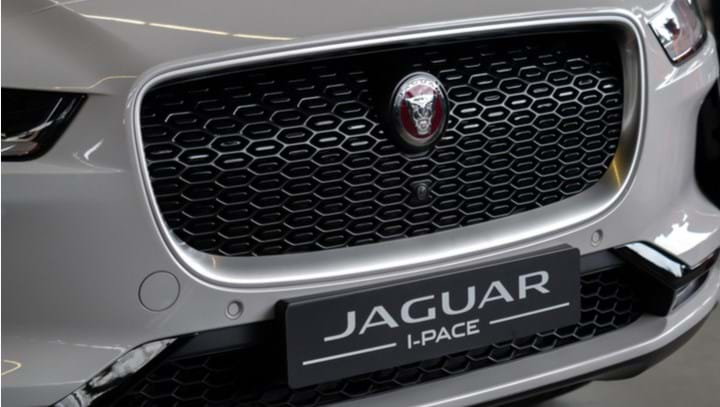Tata Group invests ?4bn to build battery gigafactory in the UK

IN A historic moment for the UK’s growing electric vehicle (EV) industry, Jaguar Land Rover (JLR) owner Tata Group has announced that it is investing more than £4bn (US$5.14bn) to build its first gigafactory outside of India in the UK. The gigafactory will deliver more than 40 GWh of battery production annually, making it one of the largest in Europe.
The UK government has lauded the success, which reportedly[1] took months of negotiations to achieve, and the economic benefits it is expected to bring. Though industry and other stakeholders were pleased by the news, some are concerned about the impact on other businesses of the £500m subsidy it took to win the decision.
This comes months after plans for another UK gigafactory that the government was supporting[2] fell through, when battery firm Britishvolt went into administration[3]. The company was later bought[4] by Australian start-up Recharge Industries.
Tata’s gigafactory will produce battery cells and packs for a variety of applications in mobility and energy sectors. Tata said it will supply JLR’s future EV models, and may also supply other car manufacturers.
The company plans to maximise the facility’s renewable energy mix and will aim to achieve 100% clean power. It also said that the gigafactory will use innovative technologies and resource efficiency processes such as battery recycling to recover and reuse raw materials to help deliver a circular economy.
Production is expected to begin in 2026. Tata has not specified a location for the facility, but news reports[5] claim that it will be near Bridgewater in Somerset.
The investment is expected to create 4,000 direct jobs and thousands more in the wider supply chain for battery materials and critical raw minerals, helping to grow the economy while advancing the UK’s commitment to net zero. The facility’s 40 GWh output will offer almost half of the battery production capacity that the nation’s Faraday Institution has estimated[6] the UK will need by 2030 to meet national demand from EVs.
The UK government has called Tata’s investment one of the largest ever in the UK auto industry, and said it will be crucial to boosting UK battery manufacturing capacity to support the EV industry in the long term.
The government added that it is committed to making the UK “one of the best places in the world for automotive investment”. It said this is evidenced by the Automotive Transformation Fund, which is supporting development of an electrified automotive supply chain in the UK; the British Industry Supercharger scheme, energy cost relief intended to ensure that costs for key UK industries are in line with other major economies around the world; and the Advanced Propulsion Centre’s research and development competitions, which are an important part of the government’s support for the UK automotive sector’s transition to zero emission vehicles.
Tata said that the investment is integral to its commitment to electric mobility and energy storage solutions, and will help to establish a competitive green tech ecosystem in the UK.
Natarajan Chandrasekaran, chairman of Tata Group’s parent company Tata Sons commented: “Our multi-billion-pound investment will bring state-of-the-art technology to the country, helping to power the automotive sector’s transition to electric mobility, anchored by our own business, Jaguar Land Rover. With this strategic investment, the Tata Group further strengthens its commitment to the UK, alongside our many companies operating here.”
UK prime minister Rishi Sunak said Tata’s decision is a “testament to the strength of our car manufacturing industry and its skilled workers.
“We can be incredibly proud that Britain has been chosen as home to Tata Group’s first gigafactory outside India, securing our place as one of the most attractive places to build electric vehicles.”
News of the planned UK gigafactory came months after JLR announced[7] that it would invest £15bn over five years to accelerate its transition to Evs. Investment will include converting its Halewood plant in the UK to become an all-electric production facility, and building the first of three reimagined electric Jaguars in Solihull, UK.
Warm welcomes

Both experts and industry have welcomed the announcement of the planned investment, which has been described as the most important made in UK auto since Nissan arrived in the 1980s.
Mike Hawes, chief executive of UK trade association Society of Motor Manufacturers and Traders called it a “shot in the arm for the UK automotive industry, our economy, and British manufacturing jobs, demonstrating the country is open for business and electric vehicle production”.
He added: “It comes at a critical moment, with the global industry transitioning at pace to electrification. Producing batteries in the UK is essential if we are to anchor wider vehicle production here for the long term. We must now build on this announcement by promoting the UK’s strengths overseas, ensuring we stay competitive amid fierce global pressures and do more to scale up our EV supply chain.”
Colin Walker, head of transport at the Energy and Climate Intelligence Unit (ECIU), said that construction of the facility is “vital” to allowing the UK’s car industry to adapt, keep tens of thousands employed, and generate export income. ECIU offers briefings to support informed debate on energy and climate change issues in the UK.
Walker added that “80% of the cars built in the UK are exported. Over 70% of these go to the EU, the US, and China, all of whom are committed to making the move to electric vehicles. If the UK’s car industry doesn’t evolve to meet that demand, it could find itself losing over £13bn a year in export revenue by 2030.”
Greenpeace UK’s senior climate campaigner, Paul Morozzo, reportedly[8] said the news is “a signal that the government has finally started the engine in the international clean technology race, while others are speeding ahead”. However, he also noted that to maximise the economic and environmental benefits from the factory, the government must stick to its commitment to phase out petrol and diesel cars from 2030, pass regulations to deliver it, and ignore attempts to derail the EV transition.
A desperate government
However, some commentors have expressed concern about the lengths the government took to convince Tata to build in the UK, and what it could mean for others seeking support. The country had been in competition with Spain, but the UK was selected after offering Tata hundreds of millions of pounds in subsidies to support the investment.
The subsidy amount has not been disclosed but the Financial Times reports[9] the figure at about £500m, adding that Tata is also set to benefit from the British Industry Supercharger scheme.
Lord Macpherson, former permanent secretary to UK treasury, said: “I’m full of admiration for Tata’s ability to extract ever higher rents from a desperate government. That’s protectionism: it reduces competition and rewards incumbents at the expense of consumers and taxpayers.”
Darren Jones, chairman of parliament’s cross-party business and trade committee, said that the group will reflect on the subsidy required to secure the deal. “The government must set out if this type of support is available to the wider UK automotive sector,” he added.
Quentin Willson, founder of the national EV campaign FairCharge told[10] BBC News about industry concerns that this move could “sweep up” all available government support. “I truly hope that other companies in the battery, critical minerals, charging, and EV supply chains won’t be neglected,” he said.
The report added that Andy Palmer, CEO of EV charging provider Pod Point, said that the UK needs a strategic industrial strategy that “lifts all boats”, adding that “support must come in all shapes and sizes for business of all shapes and sizes”.
“One gigafactory doesn’t equal success, it equals part of the puzzle.”
Nevertheless, it appears that the British public is behind the subsidy, with an Energy and Climate Intelligence Unit poll[11] showing that 53% of those asked back the package, while only 27% opposed it.
Moreover, UK business and trade secretary Kemi Badenoch defended[12] the UK’s approach to supporting EV industry in the Financial Times, saying that the nation is in “a battle of wits competing with countries prepared to offer eye-watering sums to pry business away from our shores”.
Since the US announced its Inflation Reduction Act (IRA)[13], which offers cleantech developers a flood of subsidies and incentives, other countries have feared that it would draw away private investment and disrupt supply chains. Badenoch described[14] the IRA as protectionist. Earlier this year, the EU launched[15] net zero plans intended to rival the US’s incentives.
Meanwhile, it has been expected for some time now that the UK will support another Tata business, with reports[16] speculating that the government would offer Tata Steel £300m to help it avoid financial collapse and support a green transition.
References
- ^ reportedly (www.businessgreen.com)
- ^ supporting (www.thechemicalengineer.com)
- ^ administration (www.thechemicalengineer.com)
- ^ bought (www.thechemicalengineer.com)
- ^ news reports (www.businessgreen.com)
- ^ estimated (www.faraday.ac.uk)
- ^ announced (www.jaguarlandrover.com)
- ^ reportedly (www.businessgreen.com)
- ^ reports (www.ft.com)
- ^ told (www.bbc.co.uk)
- ^ poll (eciu.net)
- ^ defended (www.ft.com)
- ^ its Inflation Reduction Act (IRA) (www.thechemicalengineer.com)
- ^ described (www.thechemicalengineer.com)
- ^ launched (www.thechemicalengineer.com)
- ^ reports (www.businessgreen.com)